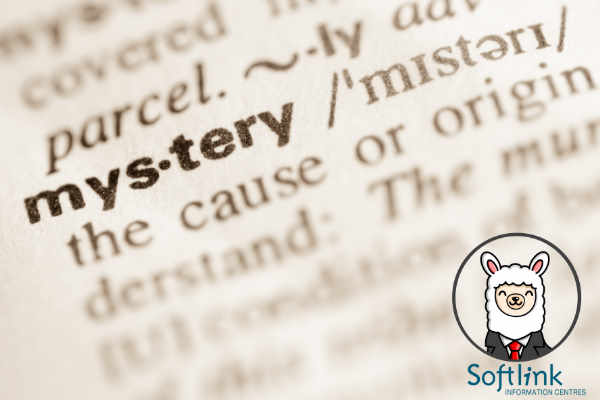Softlink IC Blog
Subscribe to our regular updates
End the eBook Mystery

eBooks are not new. They’ve been around since the 70s (that’s right, the 1970s, not a typo!). However, for libraries and knowledge centers, eBooks have grown tremendously in popularity since the early 2000s and they have their place on library ‘shelves’ for a few reasons:
- eBooks provide convenience for users. An eReader, loaded with a number of eBooks and journals, makes it easy to transport, access, and read.
- eBooks do not take up space. For libraries (especially legal or health libraries) some resources can be hungry for shelf space, they can be voluminous. eBooks are a perfect alternative to overcome limited floor space.
- eBooks give people options – they’re a portable, compact and convenient alternative to a physical book. Users can change page colors, font size and fonts, to suit their needs. Even better, most libraries provide their users with both options, enabling their users to choose the format they prefer.
- The future of eBooks. Greater interactivity between readers and eBooks means interactive options already available on eReaders will continue to grow. Users can already “write” notes in margins, highlight, save pieces of text, and “bookmark”. Who knows what the future will hold?
If you’re considering adding eBooks to your collection, there are some things to remember:
- Not all resources are available as eBooks.
- The eBooks you can personally buy from online retailers like Amazon.com aren’t always available for libraries or knowledge centers to purchase.
- The licenses for eBooks are complex. Often, just like a physical book, there won’t always be unlimited copies available.
Purchasing eBooks
Librarians can purchase eBooks via a subscription model through an eBook publisher. This subscription will incorporate a publisher agreement and details about digital rights management. There are a significant number of eBook vendors available to librarians. The types of eBooks and resources library staff want to offer their users will determine which vendor, or vendors, they source eBooks from. Some of commercial vendors include:
- Wheelers (schools, public libraries)
- OverDrive (schools, public, academic, and special libraries)
- ProQuest eBook Central (academic, schools, public, and special libraries)
- EBSCO eBooks (academic, public, schools, and special libraries)
- Gale eBooks (academic, public, schools, and special libraries)
Every eBook vendor provides an overview of the titles and subjects of eBooks they offer. They can be contacted to discuss terms related to eBook subscriptions, including associated licensing costs and the number of times their eBooks can be loaned.
Some eBooks Are Even Free!
Many libraries and knowledge centers can take advantage of several open access repositories with significant collections for free! Here are a few examples:
- Project Gutenberg – this site offers over 60,000 free eBooks.
- National Academies Press Free eBooks – created by the National Academy of Sciences, this site contains thousands of eBooks and PDF reports published by the Academy of Sciences, Engineering & Medicine.
- Open Library – this site has millions of books available through controlled lending, find out more here.
- Other digital libraries containing free, open-source eBooks and reports.
Why not check them out to see what eBooks or eResources they offer that would be valuable to your library or knowledge center!
Liberty Seamlessly Handles e-Resources
Liberty’s secret to eBook success is eZRead. It means your users can access digital resources without leaving Liberty, all at the click of a button! Liberty’s eZRead enables libraries to source e-resources from providers such as Wheelers, OverDrive, Browns or EBL. Other eBook providers include ProQuest (available via Liberty’s Federated Search), Nextory (for access to eBooks in languages other than English) or resources from an open access repository.
Any e-resources not sourced from the providers listed above can be easily found, and downloaded, making the experience in Liberty seamless for borrowers and library staff alike! Liberty’s eZRead function benefits staff but it also has real benefits for borrowers. Some include:
- No need to remember multiple logins.
- Resources are searchable in the one place, including e-books, physical resources, PDFs and images.
- Access to e-resources in the browser on most devices.
And the benefits of eZRead for staff include:
- No additional software installations.
- Recording e-resource borrowing statistics in Liberty.
- Access to usage reports on digital resource usage using Liberty’s powerful reporting capability.
Cataloging and displaying a library’s eBook offerings, in a good ILMS like Liberty, is quick and easy. If your current library management system does not make it easy to manage an increasingly diverse range of material types including eBooks, why not contact us or book a free demo.
CATEGORIES
Solutions
Recent Blog Articles
Popular Articles
More
© 2024 Softlink. All Rights Reserved | Data Protection and Privacy Policy |Data Processing Agreement | Modern Slavery Statement | Careers | Cookie Policy


0 Comments